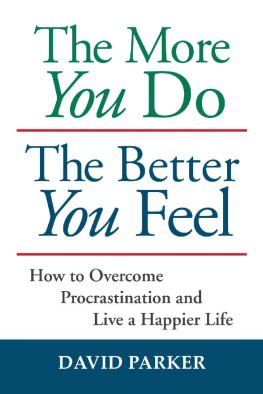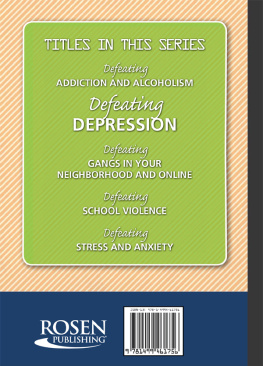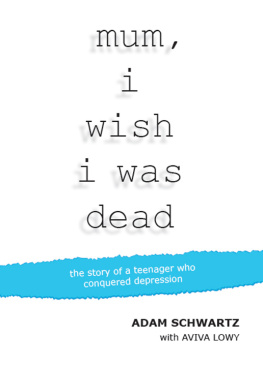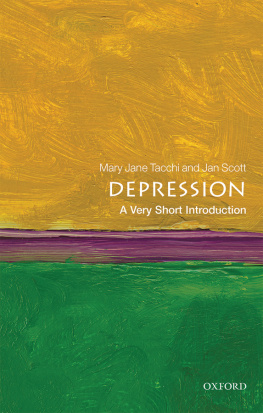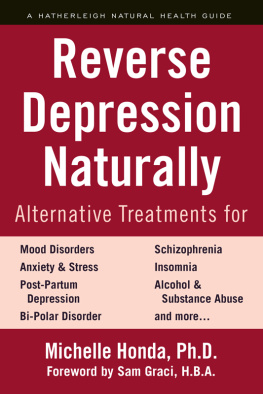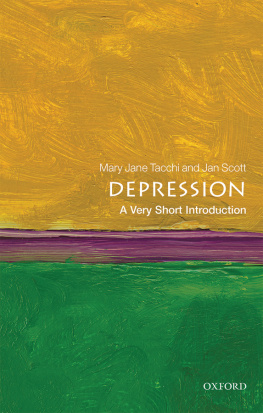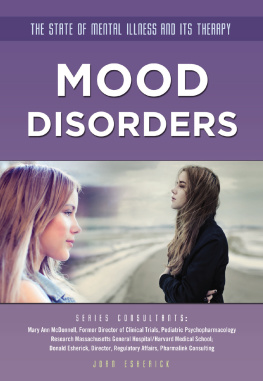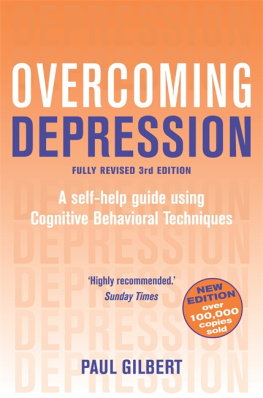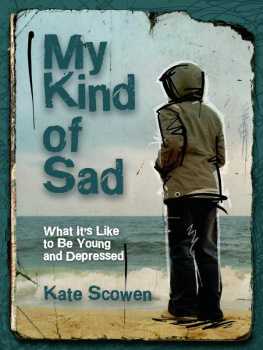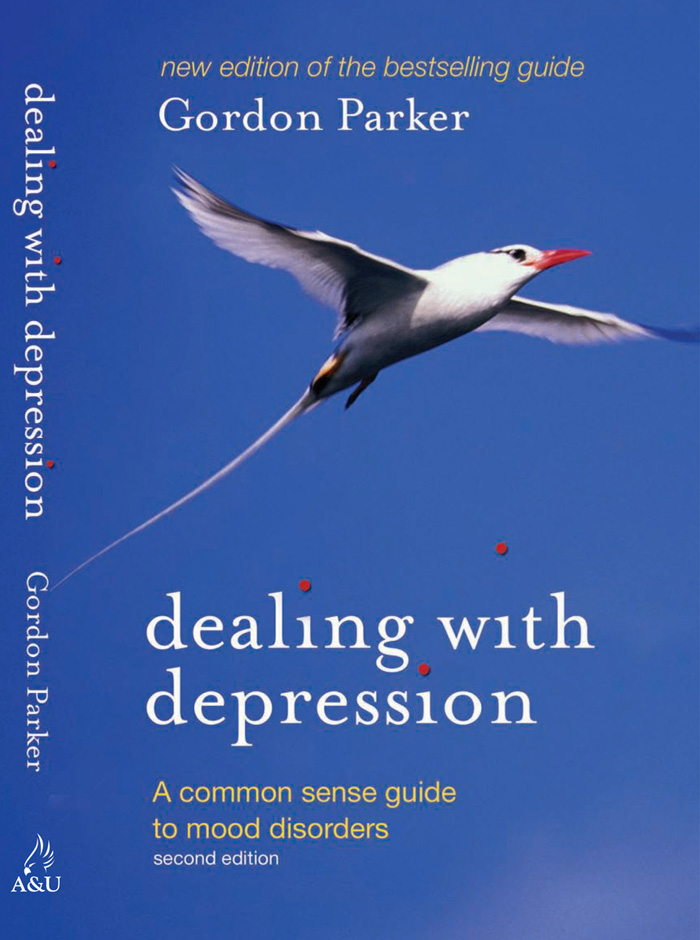The World Health Organisation tells us that depression is the greatest cause of disability in our world. But how many depressions are out there, and what can be done about them? Read Gordon Parkers book and find out.
Gordon Parker is a Professor of Psychiatry at the University of New South Wales and was instrumental in setting up the Black Dog Institute which leads research into depression in Australia. His book is filled with careful clinical observations, wise recommendations on treatment and much more. His views on the increasing incidence of bipolar disorder are interesting and important. Anyone experiencing depression or managing it should read this book carefully.
John Ellard AM, Former editor Modern Medicine Australia
... compelling and compassionate... honest concerning available facts...
Anthony W. Clare, MD. St Patricks Hospital, Dublin
... an excellent overview of the depressive illnesses, written by one of the leading authorities on the subject.
Kay Redfield Jamison, PhD, Professor of Psychiatry, The Johns Hopkins School of Medicine
Gordon Parker has style. The second edition of Dealing with Depression provides an outstandingly accessible account of how he sees the theory and practice of treating depression. While it is clearly written originally for the non-professional, the story is told from the cutting edge of research and treatment. It exemplifies the modern unifying approach to psychiatrya synthesis of reliable knowledge and clinical judgment. It is a book both to read and to recommend to ones patients and their families.
Guy Goodwin, Professor of Psychiatry, Oxford University

Gordon Parker is a leading international expert on depression
and mood disorders. He is Scientia Professor of Psychiatry at the
University of New South Wales, and Executive Director of the
Black Dog Institute (incorporating the former Mood Disorders
Unit) at the Prince of Wales Hospital in Sydney.
DEALING WITH
DEPRESSION
A common sense guide to mood
disorders
2nd edition
GORDON PARKER
with the assistance of David Straton, Kay Wilhelm,
Philip Mitchell, Marie-Paule Austin, Kerrie Eyers,
Dusan Hadzi-Pavlovic, Gin Malhi and Sue Grdovic

This edition first published in 2004
First Published in 2002
Copyright Gordon Parker 2004
All rights reserved. No part of this book may be reproduced or transmitted in any form or by any means, electronic or mechanical, including photocopying, recording or by any information storage or retrieval system, without prior permission in writing from the publisher. The Australian Copyright Act 1968 (the Act) allows a maximum of one chapter or ten per cent of this book, whichever is the greater, to be photocopied by any educational institution for its educational purposes provided that the educational institution (or body that administers it) has given remuneration notice to Copyright Agency Limited (CAL) under the Act.
Allen & Unwin
83 Alexander Street
Crows Nest NSW 2065
Australia
Phone: (61 2) 8425 0100
Fax: (61 2) 9906 2218
Email: info@allenandunwin.com
Web: www.allenandunwin.com
National Library of Australia
Cataloguing-in-publication entry:
Parker, Gordon, 1942-.
Dealing with depression : a commonsense guide to mood
disorders.
2nd ed.
Includes index.
ISBN 1 74114 214 8.
1. Depression, Mental - Popular works. I. Title.
616.8527
Typeset in 11/14 pt Adobe Garamond by Midland Typesetters
Printed by McPhersons Printing Group
10 9 8 7 6 5 4 3 2
People seem to be able to bear or tolerate depression as
long as there is the belief that things will improve.
Kay Jamison, Night Falls Fast
CONTENTS
PREFACE TO THE
SECOND EDITION
Dealing with Depression was first published in early 2002. While the book was written for those with mood disorders and their families, it also proved to be of considerable interest to health professionals. In preparing this edition, the objective has been to maintain the strengths of the original publication but to give greater emphasis to topics that have generated questions from interested readers. In particular, the book now covers in much greater detail the bipolar disorders and the ways in which differing personality styles can contribute to the non-melancholic depressive disorders.
The non-melancholic disorders represent the most common depressive conditions in the community but they have proved difficult to define and differentiate from each other. It has therefore been difficult to determine the most appropriate treatments. Most systems classify them on a dimensional basis (i.e. severity, duration and persistence). We argue for an alternative modelthat certain personality styles predispose individuals to develop these depressive conditions following germane stressful events. We also suggest that personality style shapes the clinical depressive pattern and, perhaps more importantly, influences the chance of responding to differing treatments. This is a central component of our approach, but it remains a field where much more research is required to determine its capacity to indicate the most appropriate treatments for different disorders.
Our Mood Disorders Unit team (incorporated within the Black Dog Institute) is working hard at developing the model and those with non-melancholic conditions may be able to help us with parts of that research. Thus, this book has a unique feature. Those who have experienced a depressive disorder may wish to complete the Personality and Treatment Response Survey on our website (www.blackdoginstitute. org.au), a confidential approach where your anonymity is totally respected. As part of that survey, you will complete a personality measure, with scores on key dimensions being given to you at the end of the questionnaire. As noted, personality influences the chance of onset of non-melancholic disorders (in particular), as well as influencing how long they last and (possibly) response to differing treatments. Your personality profile will give you a snapshot of how you may be at increased (or decreased) risk to a non-melancholic depressive disorder, and thus allow you to consider the material in Chapter 10 (Personality Styles and Non-melancholic Depression) more closely. It may assist your thinking about what might be the most appropriate treatment for you.
Since the first edition was published, three concerns about the current management of mood disorders have increasingly occupied our Institutes attention. First, we believe thatas a consequence of the current model of depressiona significant number of individuals with a more biological depressive disorder are being undertreated. Second, and more commonly, a high percentage of people with the less biological disorders (i.e. non-melancholic ones) appear to be receiving treatment that is excessively physical. It is not unusual for us to see people with so-called treatment-resistant non-melancholic disorders who have received up to 20 different drugs and/or ECT, the doctors view being that depression is a disease and that only a physical treatment approach is relevant.



